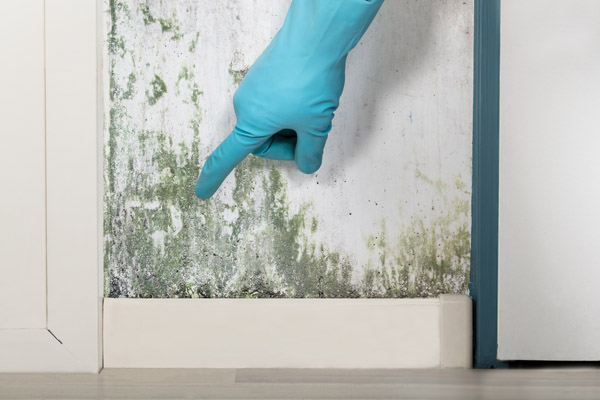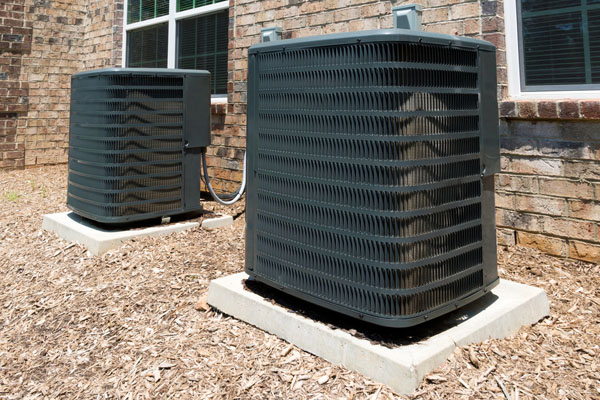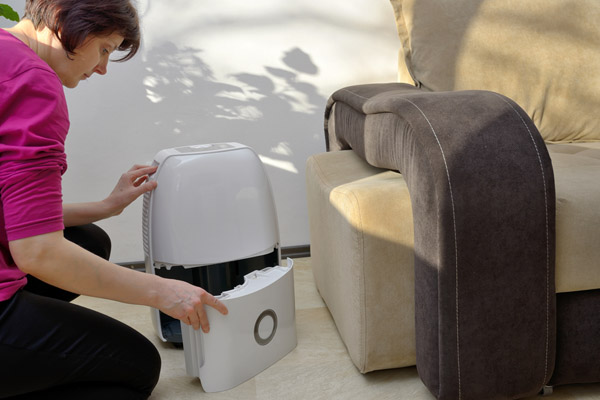How Does My AC Remove Humidity In My House? was originally written and published on Miller's Oil Delivery and HVAC Blog
 If you live in an area that has high temperatures and damp weather, you’re probably familiar with humidity-that uncomfortable, muggy, and damp feeling. Humidity outdoors is dreadful enough, but when it is inside the home, it feels like there is no escape. Luckily, installing a high-quality HVAC system in your house can mitigate the problem. Keep reading if you have high humidity in your house and want to learn effective tips on how to remove humidity. [maxbutton id="6" text="Explore Our Cooling Services" ] [maxbutton id="1" text="Call To Schedule A Free, In-Home Estimate" ]
If you live in an area that has high temperatures and damp weather, you’re probably familiar with humidity-that uncomfortable, muggy, and damp feeling. Humidity outdoors is dreadful enough, but when it is inside the home, it feels like there is no escape. Luckily, installing a high-quality HVAC system in your house can mitigate the problem. Keep reading if you have high humidity in your house and want to learn effective tips on how to remove humidity. [maxbutton id="6" text="Explore Our Cooling Services" ] [maxbutton id="1" text="Call To Schedule A Free, In-Home Estimate" ]
What Is Indoor Air Quality?
The quality of air in and around buildings is referred to as Indoor Air Quality (IAQ). Often, this term is used when discussing how air quality affects people's health. Difficulty breathing, allergic reactions, and symptoms that are similar to the flu are commonly caused by bad indoor air quality. If you are exposed to indoor air pollutants for long periods of time, you could even develop respiratory diseases. It is very important to maintain high IAQ standards to avoid any detrimental effects.How High Humidity Levels Impact Your Indoor Air Quality
The Environmental Protection Agency (EPA) states that high humidity is one of the main factors that contribute to poor air quality. Humidity creates the perfect conditions for mold and mildew to grow. Mold and mildew release spores into the air that can be dangerous to humans when they permeate the walls, carpets, and other porous surfaces. If you are experiencing headaches, skin rashes, eye irritation, and lung infections, you may have a mold infestation. Besides that, homes with high humidity are more likely to have dust mites and other allergens.Signs Of High Humidity In Your Home
 The humidity levels in your home can still be too high, even with the use of an air conditioning system or HVAC unit. Some symptoms of high humidity include:
The humidity levels in your home can still be too high, even with the use of an air conditioning system or HVAC unit. Some symptoms of high humidity include:
- Even with the air conditioning on, you constantly sweat or your skin feels clammy
- Breathing is difficult
- Your allergies are bothering you
- The windows in your home are fogged up or there is condensation on the glass inside
- Your house has a musty smell
- You notice water stains or spots where walls or ceilings look damp
- There is mold growing on ceilings, walls, or other objects
- Your windows or door frames have cracks around them
- There is rotting wood inside or outside of your house
The Effects Of High Humidity
 Besides causing potential health problems, high humidity can also destroy your home. For example, any excess moisture in the air can start to rot the wood. This issue can cause structural damage to your home and also create openings for pests such as rats, termites, or cockroaches. In addition to that, other high humidity effects are door frames and window frames cracking and damage to porous household items like books, carpets, or clothing. [maxbutton id="6" text="Explore Our AC Services" ] [maxbutton id="1" text="Call To Make An Appointment" ]
Besides causing potential health problems, high humidity can also destroy your home. For example, any excess moisture in the air can start to rot the wood. This issue can cause structural damage to your home and also create openings for pests such as rats, termites, or cockroaches. In addition to that, other high humidity effects are door frames and window frames cracking and damage to porous household items like books, carpets, or clothing. [maxbutton id="6" text="Explore Our AC Services" ] [maxbutton id="1" text="Call To Make An Appointment" ]
Removing Humidity From Your Home
How Can My Air Conditioner Remove Humidity From My Home?
 Air conditioners pull out hot, humid air, in addition to blowing cool air into your house. The evaporator coil inside your HVAC system condenses water from the air and brings it out of the house through a drain. Assuming your air conditioner system is working correctly, it should keep your house at the ideal humidity level. The EPA says that 30% to 50% humidity in the house with air conditioning is optimal. A higher or lower percent may indicate air conditioner humidity problems.
Air conditioners pull out hot, humid air, in addition to blowing cool air into your house. The evaporator coil inside your HVAC system condenses water from the air and brings it out of the house through a drain. Assuming your air conditioner system is working correctly, it should keep your house at the ideal humidity level. The EPA says that 30% to 50% humidity in the house with air conditioning is optimal. A higher or lower percent may indicate air conditioner humidity problems.
Dehumidifier Vs. Air Conditioner: Which Works Best?
 A common question people ask is whether an air conditioner or a dehumidifier is better for removing humidity. Essentially, a dehumidifier removes the moisture from the air, but an air conditioner removes any excess moisture and then cools the air. Portable dehumidifiers are ideal for removing moisture in a specific part of your house. However, to cool large areas, an HVAC system is better. An air conditioner also has an air filter which helps to filter out pollutants. If you want to use a dehumidifier with an air conditioner, a whole-house dehumidifier is best. They work together with your HVAC system to pull out hot, moist air and decrease the temperature in your house. [maxbutton id="1" text="Call To Schedule An Appointment" ]
A common question people ask is whether an air conditioner or a dehumidifier is better for removing humidity. Essentially, a dehumidifier removes the moisture from the air, but an air conditioner removes any excess moisture and then cools the air. Portable dehumidifiers are ideal for removing moisture in a specific part of your house. However, to cool large areas, an HVAC system is better. An air conditioner also has an air filter which helps to filter out pollutants. If you want to use a dehumidifier with an air conditioner, a whole-house dehumidifier is best. They work together with your HVAC system to pull out hot, moist air and decrease the temperature in your house. [maxbutton id="1" text="Call To Schedule An Appointment" ]
Your Air Conditioner & Humidity
Your air conditioner can greatly reduce humidity in your house by taking moisture out of the air and releasing it outside. When used with a whole-house dehumidifier, it’s easy to maintain the EPA recommended humidity levels between 30% to 50%. Schedule regular HVAC tune-ups to make sure your air filters, ducts, and evaporation coils are working correctly. If you think you might have an air-conditioning humidity problem, call an expert HVAC technician to look at your situation and make the necessary adjustments.Call Miller Oil Company For Expert HVAC Services
 Miller Oil Company has great heating and cooling services in Hartford County, Connecticut. Our NATE certified technicians can provide you with excellent HVAC tune-ups, repairs, installations, and replacements. Our HVAC techs are very knowledgeable and experienced, and they know how to service your system correctly. Miller Oil Company offers competitive heating and cooling service costs in this area. Our HVAC services will improve your comfort, indoor air quality, and energy efficiency in your home. We can service your system while staying within your budget if you are looking for an HVAC repair or replacement system. We back all of our work with a guarantee to ensure your satisfaction. To schedule an air conditioner service appointment, tune-up, or a free, in-home estimate, give Miller Oil Company a call today. [maxbutton id="1" text="Call Now: (860) 745-0326" ] [maxbutton id="15" text="Read Our Reviews" ] Click here to contact us today or give us a call at (860) 745-0326 if you have any questions.
Miller Oil Company has great heating and cooling services in Hartford County, Connecticut. Our NATE certified technicians can provide you with excellent HVAC tune-ups, repairs, installations, and replacements. Our HVAC techs are very knowledgeable and experienced, and they know how to service your system correctly. Miller Oil Company offers competitive heating and cooling service costs in this area. Our HVAC services will improve your comfort, indoor air quality, and energy efficiency in your home. We can service your system while staying within your budget if you are looking for an HVAC repair or replacement system. We back all of our work with a guarantee to ensure your satisfaction. To schedule an air conditioner service appointment, tune-up, or a free, in-home estimate, give Miller Oil Company a call today. [maxbutton id="1" text="Call Now: (860) 745-0326" ] [maxbutton id="15" text="Read Our Reviews" ] Click here to contact us today or give us a call at (860) 745-0326 if you have any questions. from HVAC Company - Feed https://www.milleroilcompany.com/how-to-remove-humidity/

No comments:
Post a Comment